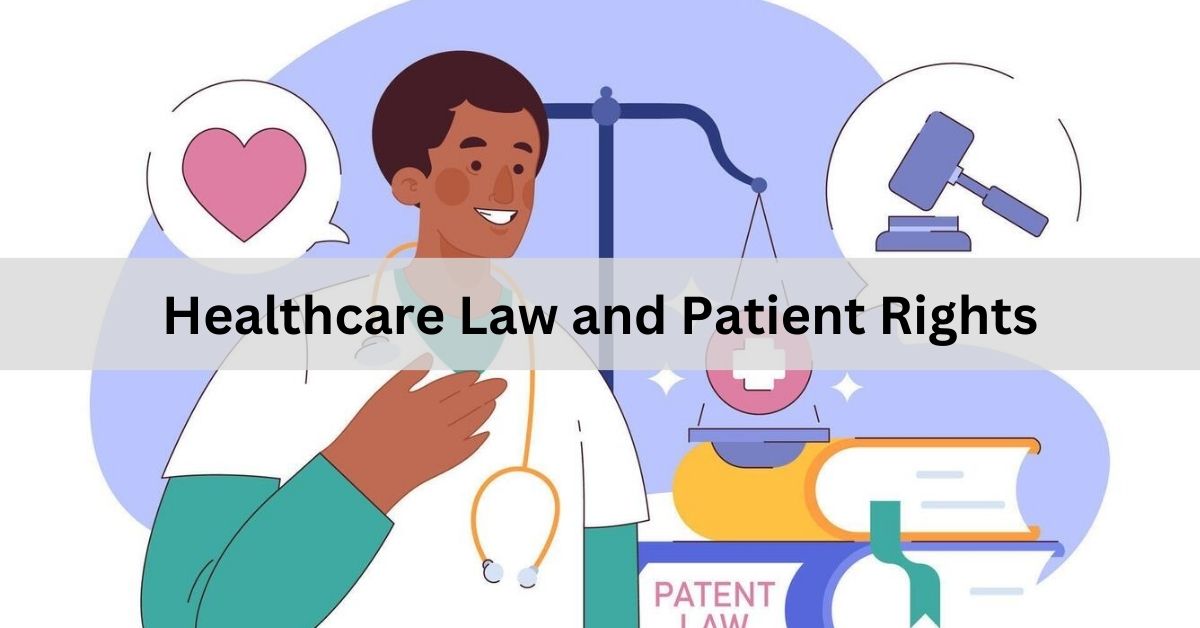Healthcare law is an essential aspect of the medical field, governing the relationships between patients, healthcare providers, and the institutions that support them. This legal framework is designed to protect patient rights, ensure quality care, and regulate the complex interactions within the healthcare system. Understanding healthcare law and patient rights is crucial for both patients and professionals to navigate the medical landscape effectively.
Contents
- 1 The Fundamentals of Healthcare Law
- 2 Patient Rights and Responsibilities
- 3 Informed Consent and Its Importance
- 4 Medical Malpractice and Legal Recourse
- 5 Confidentiality and HIPAA
- 6 The Role of Healthcare Providers in Upholding Patient Rights
- 7 Government Regulations and Patient Protection
- 8 Ethical Considerations in Healthcare
- 9 The Future of Healthcare Law and Patient Rights
- 10 Conclusion
The Fundamentals of Healthcare Law
Healthcare law encompasses a broad range of legal issues, including medical malpractice, patient confidentiality, informed consent, and healthcare fraud. These laws are designed to ensure that healthcare providers deliver safe and effective care while respecting the rights and dignity of patients.
One of the foundational principles of healthcare law is the right to receive adequate medical care. This includes the right to be informed about one’s medical condition, the available treatment options, and the potential risks and benefits associated with each option. This principle is rooted in the concept of informed consent, which requires healthcare providers to obtain a patient’s voluntary agreement before proceeding with any medical intervention.
Patient Rights and Responsibilities
Patient rights are a central component of healthcare law. These rights are designed to protect patients and ensure they receive respectful and high-quality care. Key patient rights include:
- Right to Information: Patients have the right to receive clear and comprehensive information about their medical condition, treatment options, and potential outcomes. This allows patients to make informed decisions about their healthcare.
- Right to Privacy: Patients have the right to confidentiality regarding their medical information. Healthcare providers must protect patient privacy and ensure that medical records are kept secure.
- Right to Consent: Patients must provide informed consent before any medical treatment or procedure is carried out. This means they should fully understand the nature of the treatment, its risks, and its benefits.
- Right to Non-Discrimination: Patients have the right to receive medical care without discrimination based on race, gender, age, disability, or other characteristics.
- Right to Access Care: Patients have the right to access necessary medical care, including emergency services, without undue delay.
In addition to these rights, patients also have responsibilities, such as providing accurate medical history information, following treatment plans, and respecting healthcare providers and other patients.
Informed Consent and Its Importance
Informed consent is a cornerstone of patient rights and healthcare law. It ensures that patients are fully aware of and agree to the proposed medical treatments or procedures. This process involves a thorough explanation of the diagnosis, the nature and purpose of the treatment, the risks and benefits, and any alternative options.
The importance of informed consent cannot be overstated. It empowers patients to make decisions about their healthcare and protects them from unwanted or unnecessary treatments. Failure to obtain informed consent can lead to legal consequences for healthcare providers and institutions, including claims of medical malpractice.
Medical Malpractice and Legal Recourse
Medical malpractice occurs when a healthcare provider fails to meet the standard of care, resulting in harm to the patient. This can include errors in diagnosis, treatment, aftercare, or health management. Patients who suffer from medical malpractice have the right to seek legal recourse to obtain compensation for their injuries.
To prove medical malpractice, a patient must demonstrate that:
- A provider-patient relationship existed.
- The provider was negligent and did not meet the standard of care.
- The negligence caused injury to the patient.
- The injury led to specific damages, such as physical pain, mental anguish, additional medical bills, or lost earning capacity.
Medical malpractice claims can be complex and require substantial evidence. Legal professionals specializing in healthcare law can assist patients in navigating these claims and seeking justice.
Confidentiality and HIPAA
Patient confidentiality is a fundamental right protected under healthcare law. The Health Insurance Portability and Accountability Act (HIPAA) is a federal law that sets the standards for protecting sensitive patient information. HIPAA ensures that medical information is kept private and secure and limits the circumstances under which it can be disclosed without patient consent.
HIPAA compliance is mandatory for healthcare providers, insurance companies, and other entities that handle patient information. Violations of HIPAA can result in severe penalties, including fines and legal action.
The Role of Healthcare Providers in Upholding Patient Rights
Healthcare providers play a crucial role in upholding patient rights. They are responsible for:
- Ensuring patients are fully informed about their medical conditions and treatment options.
- Obtaining informed consent before performing any medical procedures.
- Protecting patient privacy and maintaining confidentiality.
- Providing non-discriminatory and respectful care.
- Responding to patient concerns and complaints promptly and effectively.
Healthcare providers must stay informed about the latest developments in healthcare law and patient rights to provide the highest standard of care and avoid legal pitfalls.
Government Regulations and Patient Protection
Government regulations play a vital role in protecting patient rights and ensuring healthcare quality. Various federal and state laws govern different aspects of healthcare, including:
- The Affordable Care Act (ACA): Expands access to healthcare and prohibits discrimination based on pre-existing conditions.
- The Americans with Disabilities Act (ADA): Protects the rights of individuals with disabilities, ensuring they receive equal access to healthcare services.
- The Patient Safety and Quality Improvement Act (PSQIA): Encourages healthcare providers to improve patient safety and quality of care by protecting patient safety data.
These regulations aim to create a healthcare system that is fair, accessible, and of high quality for all patients.
Ethical Considerations in Healthcare
Ethical considerations are integral to healthcare law and patient rights. Ethical principles such as autonomy, beneficence, non-maleficence, and justice guide healthcare providers in their practice. These principles ensure that patients are treated with respect, compassion, and fairness.
Healthcare providers must balance ethical considerations with legal requirements to provide care that is both lawful and morally sound. This includes respecting patient autonomy, providing beneficial treatments, avoiding harm, and ensuring equitable access to healthcare services.
The Future of Healthcare Law and Patient Rights
The landscape of healthcare law and patient rights is continually evolving. Advances in technology, changes in healthcare delivery models, and emerging public health challenges require ongoing adaptation of legal frameworks. Key areas of focus for the future include:
- Telemedicine: Ensuring patient rights and privacy in the growing field of telemedicine.
- Genetic Information: Protecting patient privacy and preventing discrimination based on genetic information.
- Data Security: Strengthening protections against cyber threats and data breaches in healthcare.
- Healthcare Access: Addressing disparities in healthcare access and ensuring equitable care for all populations.
Conclusion
Healthcare law and patient rights are critical components of the medical field, designed to protect patients, ensure quality care, and regulate the interactions within the healthcare system. By understanding and upholding these principles, healthcare providers can deliver safe, effective, and respectful care. As the healthcare landscape continues to evolve, ongoing adaptation of legal frameworks will be necessary to address new challenges and ensure the protection of patient rights. This dynamic and evolving field underscores the importance of continuous education and awareness for both patients and healthcare professionals.


























+ There are no comments
Add yours